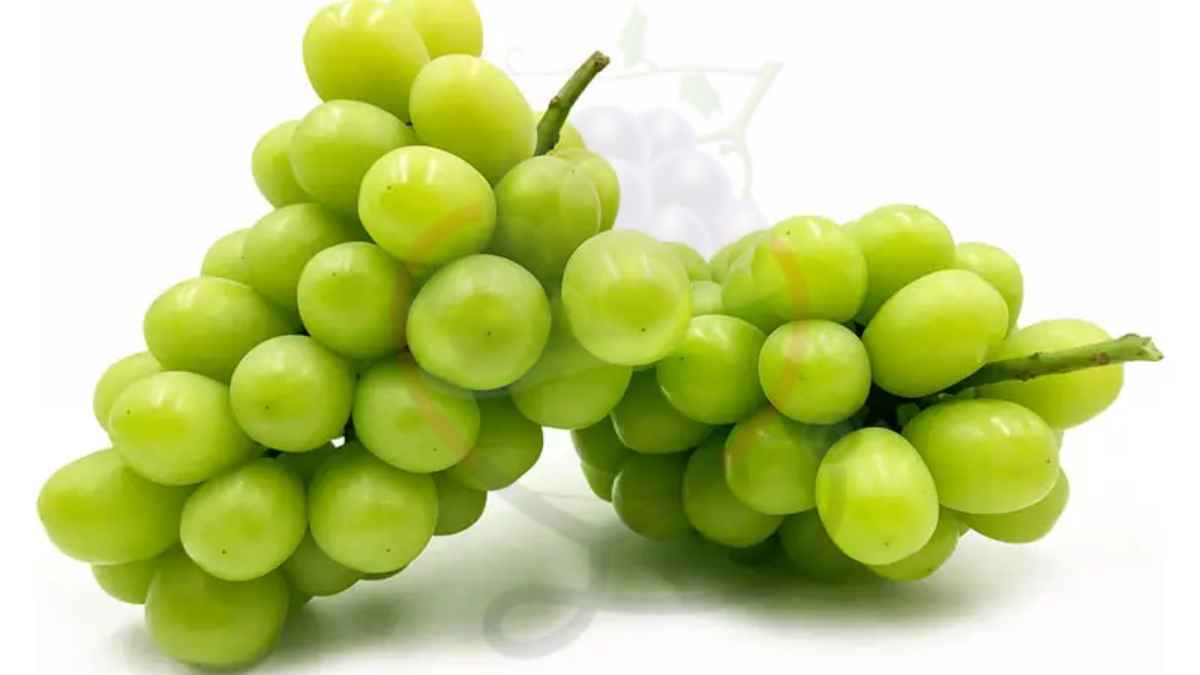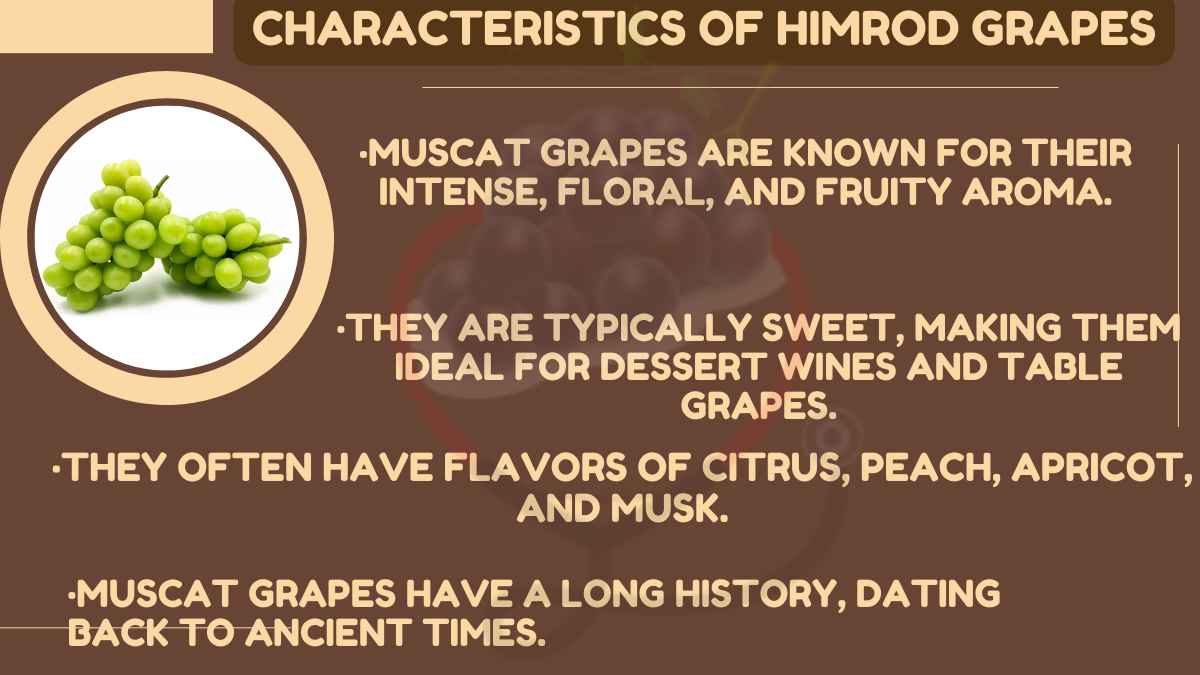Muscat grapes are a type of grape that is known for its sweet, musky flavor. They are used in a variety of ways, including winemaking, raisin production, and fresh eating. Muscat grapes are native to Italy and have been cultivated for centuries.[1]
Muscat grapes are also delicious to eat fresh. They are typically seedless or have tiny edible seeds. Muscat grapes can be eaten on their own, added to fruit salads, or used in desserts.
In this article, we will delve into the world of Muscat grapes, exploring their origins, unique characteristics, and health benefits.

Origin of Muscat Grapes
Muscat grapes, scientifically known as Vitis vinifera, belong to the Muscat family of grapes. These grapes have a rich history dating back to ancient times.
They are believed to have originated in the Mediterranean region, with records of their cultivation dating as far back as ancient Greece and Egypt.
Nutritional Value of Muscat Grapes

- Calories: 150g
- Carbohydrates: 27% of DV
- Dietary Fiber: 5% of DV
- Sugars: 23% of DV
- Vitamin C: 6% of DV
- Vitamin K: 4% of DV
- Potassium: 7% of DV
- Folate (Vitamin B9): 2% of DV
- Antioxidants: Muscat grapes contain various antioxidants, including resveratrol, which can have health benefits
Characteristics of Muscat Grapes

- Muscat grapes are known for their intense, floral, and fruity aroma.
- They are typically sweet, making them ideal for dessert wines and table grapes.
- Muscat grapes are used to produce a wide range of wines, from dry to sweet, still to sparkling.
- They often have flavors of citrus, peach, apricot, and musk.
- Muscat grapes have thin skins, which can make them more susceptible to disease but also easier to eat.
- Muscat grapes have a long history, dating back to ancient times.
- There are many different Muscat grape varieties, each with unique characteristics.
- Muscat grapes are grown in various wine regions worldwide, including France, Italy, and Australia.
- They pair well with a variety of foods, including cheese, fruit, and desserts.
- Some Muscat wines can age gracefully, developing complex flavors over time.
Health Benefits of Muscat Grapes
Beyond their delightful taste and culinary versatility, Muscat grapes offer several health benefits.

1. Rich in Antioxidants
Muscat grapes are packed with antioxidants, including resveratrol, [2] which has been linked to various health benefits, such as improved heart health and reduced oxidative stress.
2. Nutrient Powerhouse
These grapes are a good source of essential vitamins and minerals, including vitamin C, vitamin K, and potassium.[3]
3. Digestive Aid
The fiber [4] content in Muscat grapes can support healthy digestion and regular bowel movements.
Muscat grapes are a true treasure in the world of fruits. Their alluring aroma, unique flavor, and versatility make them a favorite ingredient in both sweet and savory dishes.
Additionally, the health benefits they offer add to their appeal. So, whether you’re enjoying them fresh, in a glass of Muscat wine, or as part of a delicious recipe, Muscat grapes are sure to delight your senses.
FAQs (Frequently Asked Questions)
Can I grow Muscat grapes in my backyard?
Yes, Muscat grapevines can thrive in a variety of climates, making them suitable for home cultivation.
Are Muscat grapes used in making any famous wines?
Yes, Muscat grapes are a key component in the production of Muscat wines, which are famous for their sweet and aromatic characteristics.
How do I store Muscat grapes to keep them fresh?
Store Muscat grapes in the refrigerator to maintain their freshness. They can also be frozen for longer-term storage.
Are there different varieties of Muscat grapes?
Yes, Muscat grapes come in various varieties, each with its own unique flavor profile and aroma.
Can Muscat grapes be used in savory dishes?
Absolutely! Muscat grapes can be used in savory recipes to add a sweet and aromatic dimension to your dishes.

